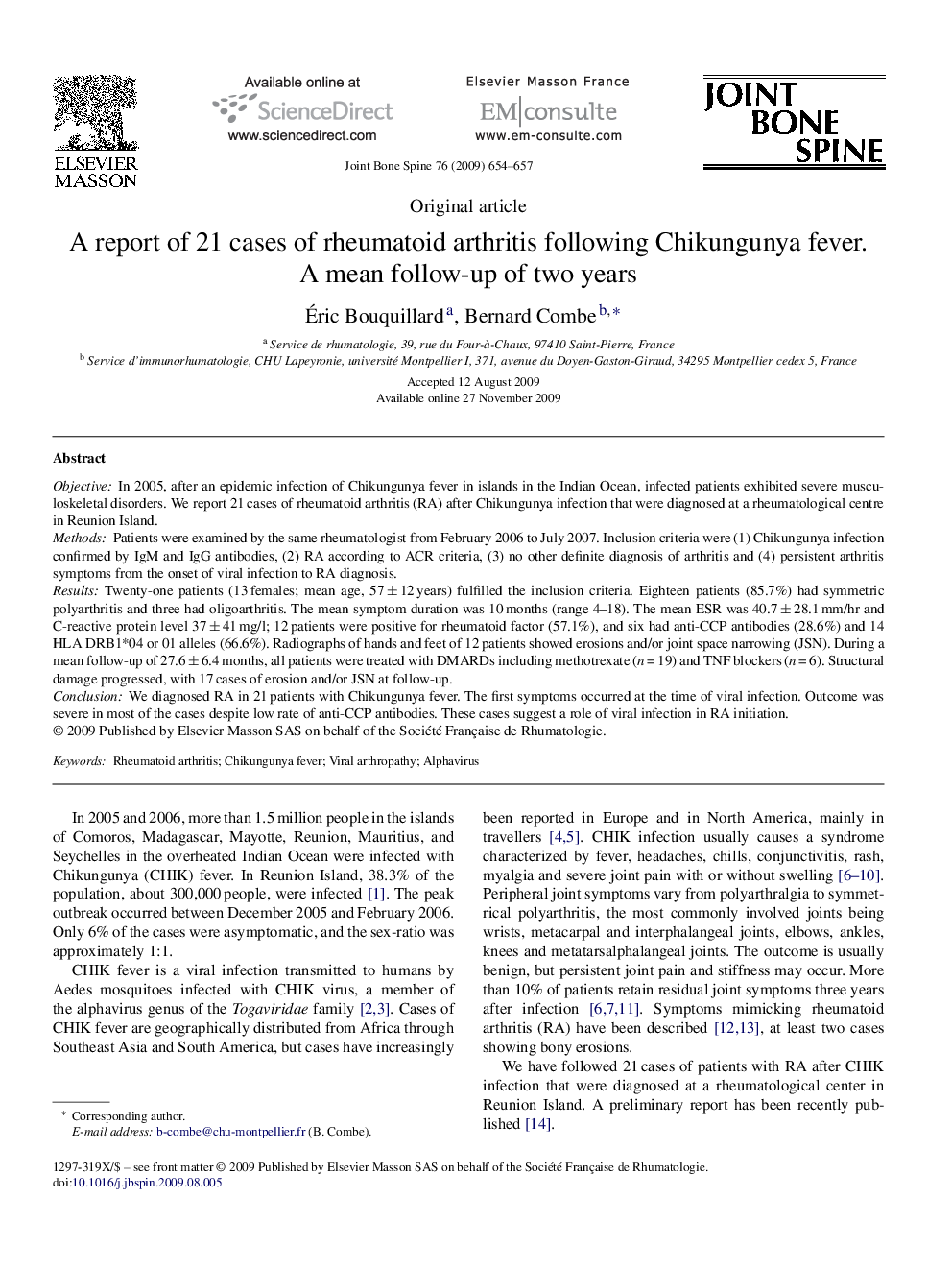| Article ID | Journal | Published Year | Pages | File Type |
|---|---|---|---|---|
| 3367056 | Joint Bone Spine | 2009 | 4 Pages |
ObjectiveIn 2005, after an epidemic infection of Chikungunya fever in islands in the Indian Ocean, infected patients exhibited severe musculoskeletal disorders. We report 21 cases of rheumatoid arthritis (RA) after Chikungunya infection that were diagnosed at a rheumatological centre in Reunion Island.MethodsPatients were examined by the same rheumatologist from February 2006 to July 2007. Inclusion criteria were (1) Chikungunya infection confirmed by IgM and IgG antibodies, (2) RA according to ACR criteria, (3) no other definite diagnosis of arthritis and (4) persistent arthritis symptoms from the onset of viral infection to RA diagnosis.ResultsTwenty-one patients (13 females; mean age, 57 ± 12 years) fulfilled the inclusion criteria. Eighteen patients (85.7%) had symmetric polyarthritis and three had oligoarthritis. The mean symptom duration was 10 months (range 4–18). The mean ESR was 40.7 ± 28.1 mm/hr and C-reactive protein level 37 ± 41 mg/l; 12 patients were positive for rheumatoid factor (57.1%), and six had anti-CCP antibodies (28.6%) and 14 HLA DRB1*04 or 01 alleles (66.6%). Radiographs of hands and feet of 12 patients showed erosions and/or joint space narrowing (JSN). During a mean follow-up of 27.6 ± 6.4 months, all patients were treated with DMARDs including methotrexate (n = 19) and TNF blockers (n = 6). Structural damage progressed, with 17 cases of erosion and/or JSN at follow-up.ConclusionWe diagnosed RA in 21 patients with Chikungunya fever. The first symptoms occurred at the time of viral infection. Outcome was severe in most of the cases despite low rate of anti-CCP antibodies. These cases suggest a role of viral infection in RA initiation.
